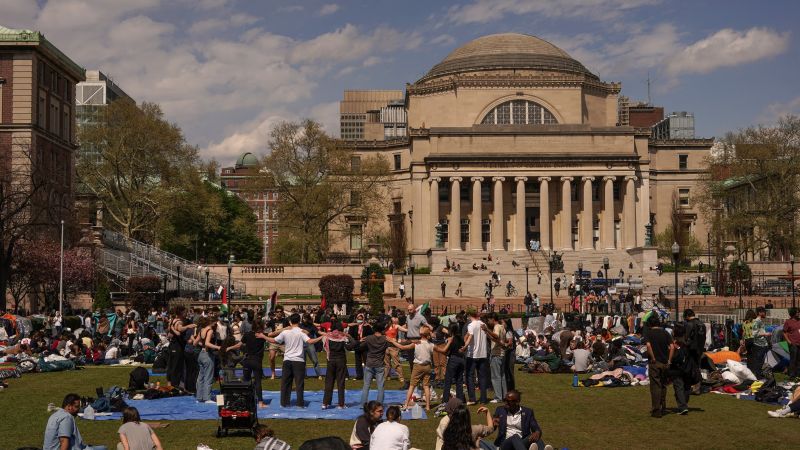Columbia University has decided to move all classes to a virtual format on Monday as tensions on campus have escalated, particularly with regards to safety concerns surrounding Passover. Columbia President Minouche Shafik made the decision in an attempt to deescalate the situation and evaluate future steps. The move highlights the intense atmosphere at the Ivy League school and the challenges Shafik faces in restoring control over the situation. There have been calls for Shafik’s resignation, with a rabbi advising Jewish students to remain at home due to fears for their safety amidst ongoing pro-Palestinian demonstrations on campus.
In response to the escalating tension on campus, the White House, New York Governor Kathy Hochul, and New York City Mayor Eric Adams have issued statements denouncing violence against Jews and reaffirming support for safety and security. Mayor Adams also warned that law enforcement will take action against anyone found to be breaking the law. The situation at Columbia presents a significant test for Shafik, who only recently assumed leadership of the university. Calls for her resignation have come from various quarters, including Rep. Elise Stefanik, who has called for new leadership at the university.
Following a contentious congressional hearing on campus antisemitism, Shafik faced increasing pressure as protests escalated on campus. The situation has drawn attention to the university’s obligations under Title VI, with Rep. Virginia Foxx warning of consequences if order and safety are not promptly restored. As Passover commences, Jewish student organizations have heightened security measures for their events and services. The Kraft Center, a shared Jewish cultural center, will have police presence throughout Passover, with additional security hired by Chabad to protect students during their celebrations.
In response to concerns raised by Jewish students, Columbia University has made ensuring the safety of its community a priority. The university is offering additional support and resources to address these concerns and maintain a safe environment for all students. The decision to move classes to virtual learning on Monday reflects the ongoing challenges facing the university administration in navigating the complex dynamics on campus. The involvement of various political figures and heightened security measures underscore the seriousness of the situation unfolding at Columbia University.
As tensions persist and safety concerns remain, the university continues to work towards finding solutions to address the issues at hand. The ongoing support and efforts to ensure the safety of all students, particularly during religious holidays like Passover, demonstrate a commitment to fostering a secure and inclusive environment. Moving forward, it will be crucial for all parties involved to engage in constructive dialogue and collaborate on strategies to promote harmony and address the underlying issues fueling the tensions on campus.


